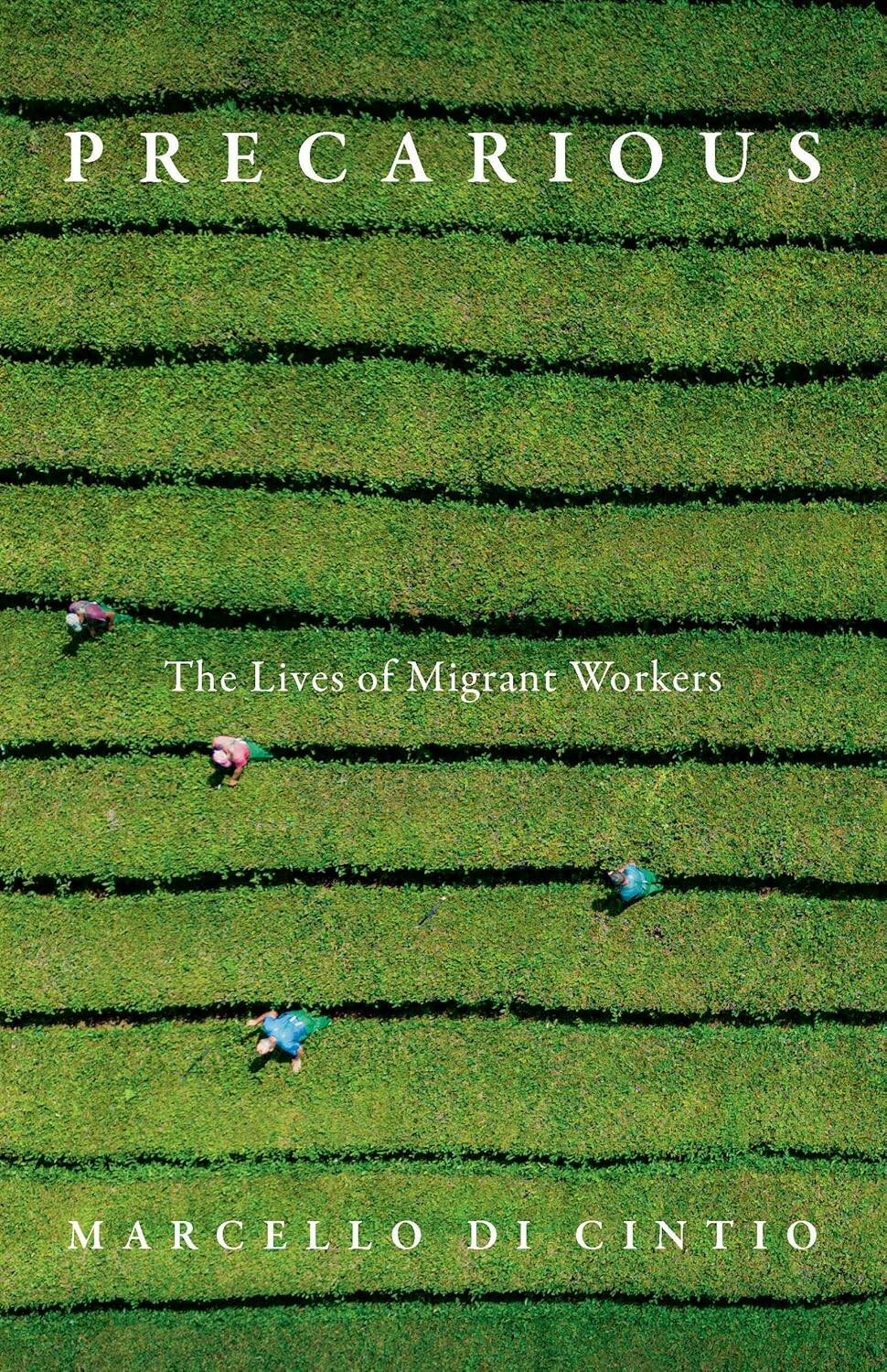Labour pains
Contributions and plight of migrant workers detailed in vital account
Advertisement
Read this article for free:
or
Already have an account? Log in here »
To continue reading, please subscribe:
Monthly Digital Subscription
$1 per week for 24 weeks*
- Enjoy unlimited reading on winnipegfreepress.com
- Read the E-Edition, our digital replica newspaper
- Access News Break, our award-winning app
- Play interactive puzzles
*Billed as $4.00 plus GST every four weeks. After 24 weeks, price increases to the regular rate of $19.00 plus GST every four weeks. Offer available to new and qualified returning subscribers only. Cancel any time.
Monthly Digital Subscription
$4.75/week*
- Enjoy unlimited reading on winnipegfreepress.com
- Read the E-Edition, our digital replica newspaper
- Access News Break, our award-winning app
- Play interactive puzzles
*Billed as $19 plus GST every four weeks. Cancel any time.
To continue reading, please subscribe:
Add Free Press access to your Brandon Sun subscription for only an additional
$1 for the first 4 weeks*
*Your next subscription payment will increase by $1.00 and you will be charged $16.99 plus GST for four weeks. After four weeks, your payment will increase to $23.99 plus GST every four weeks.
Read unlimited articles for free today:
or
Already have an account? Log in here »
Numbering in the hundreds of thousands, migrant workers are too often unnoticed and under-appreciated, living and working among us, many hoping to one day proudly proclaim Canadian citizenship. Others never warm to our long, cold winters, preferring annual seasonal-work contracts that help support families temporarily left behind.
In an engaging and well-documented study, Calgary-based writer Marcello Di Cintio reveals why migrant workers are such vital contributors to Canada’s ongoing nation-building plans, and even include foreign students who become part-time workers seeking additional income for living expenses.
Precarious: The Lives of Migrant Workers is the latest sociological study by Di Cintio, who has authored several books including Driven: The Secret Lives of Taxi Drivers and contributed to periodicals such as the Walrus and Canadian Geographic.

Jason Kryk / Canadian Press files
Foreign workers are particularly crucial in agricultural and service sectors in Canada.
As the subtitle signals, stories emanating from the many interviews comprising this book come mainly from legally vetted “migrant workers,” as opposed to undocumented “migrant refugees” who ignore national borders and are pitiful reminders of world inequities.
Recounting his own grandfather’s journey from Italy to Canada as one of many migrant workers who helped to grow a booming industrial economy following the Second World War, Di Cintio traces the growth of Canada’s migrant worker programs that preceded the current Temporary Foreign Worker program, which plays an indispensable role in sustaining the nation’s economy.
Especially crucial in agricultural and service sectors, Canada’s foreign worker program helps to maintain our often-praised standard of living by attracting workers like those who help grow our fruits and vegetables, serve our food in restaurants and drive our taxis.
As Di Cintio reveals, foreign workers continue to be integral cogs in Canada’s economic engine, even when provincial or national unemployment data rises and politically motivated calls to amend or even scrap such programs regularly surface, like those recently voiced by some provincial premiers and most notably by the recently elected opposition leader in Ottawa.
Readers are reminded that these workers are everywhere: “They build our homes, drive our trucks, clean our offices, and pour our coffee.”
Especially crucial are those helping keep food prices down by toiling in large and small agricultural enterprises during the short, hot summers, assuring a steady supply of produce while earning minimum wage and still managing to send money to families back home.
During the time spent interviewing a variety of migrants, Di Cintio garnered many unfortunate examples of toxic workplaces and abusive employers. “I’d seen them denied safety, wages, privacy, medical care and justice,” he writes, adding “I heard stories of fraud and violence and rape that I couldn’t adequately verify but wholeheartedly believe.”
Benefits accrued by Canada from migrant work programs are also acknowledged, like those flowing to our senior care facilities. These are revealed through Di Cintio’s interviews with competent health-care workers, particularly those from the Philippines whose renowned cultural affinity towards caring for the elderly make them especially well-suited.
Consistent and often-rising labour demands in Canada’s service sectors have created employment opportunities for migrant workers and, eventually for some, opportunities for permanent resident status and citizenship, fulfilling long-held dreams of steady work and comfortable homes.

Precarious
Others unfortunately bear costs largely hidden from Canadians going about their daily lives. Relying heavily on a host of websites, government-initiated studies and media reports that complement his personal interviews with migrants, Di Cintio’s revelations can be disturbing.
Dark stories are sadly comparable to centuries-old stories of slavery. Migrants detail being forced to surrender their passports to heartless employers for the duration of their contract, preventing them from seeking work in other locations while they are provided crowded or abusive conditions.
Such instances of obvious, imposed hardship as revealed in Precarious are balanced by stories of benevolent and caring employers who treat migrants as integral contributors to their particular enterprise — but not often enough to assuage the shame readers may feel about a system crying out for reform.
While many Canadians proudly embrace an “elbows up” patriotic attitude in response to annexation threats by an unpredictable American president, this deeply personal study shows why many potential citizens may have quietly kept their elbows down.
Joseph Hnatiuk is a retired teacher.

